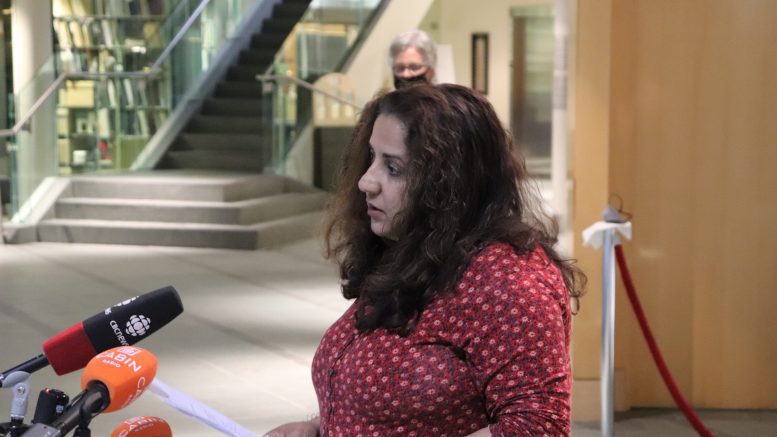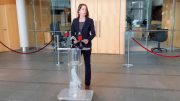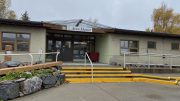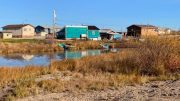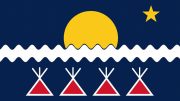As Nunavut experiences a serious COVID-19 outbreak, the Northwest Territories is implementing tougher restrictions.
This includes the chief public health officer enforcing all members of households to self-isolate if one member has just returned to the territory.
A press release says this includes no going to school, work, visits, or running errands for the entire household for 14 days.
Earlier guidelines only required the person who had traveled to self-isolate, but to maintain two metres distance from anyone else in the household.
Now all travellers and members of their household will need outline a self-isolation plan before returning. The only exception is if a household has a separate entrance, kitchen, bedroom, and bathroom that the traveller can self-isolate in, away from the other members.
Outbreak in Nunavut
Dr. Kami Kandola, the NWT chief public health officer, said in a press conference these restrictions come to prevent an outbreak such as the one Nunavut is experiencing.
The NWT suspended its travel bubble with Nunavut earlier this week as a result of the outbreak.
Dr. Kandola says she encourages people to regularly wear masks in order to reduce the threat of the virus spreading. But adds her main priority is to prevent the virus from entering the territory.
“Stricter restrictions have been focused on out of territory travellers,” she explains.
Dr. Kandola says her department is in the process of tracking down 380 travellers from Nunavut who entered the NWT before the travel bubble was suspended.
Any of those travellers who came from an area of Nunavut experiencing an outbreak are required to self-isolate. Dr. Kandola wouldn’t say how many Nunavut travellers came from the active COVID zones, but says all those who have are self-isolating and will be tested on day 10 of their isolation period.
“It’s a small number, and it’s a precaution,” she says.
Dr. Kandola adds this situation is no different than previous incidents of residents returning from the south.
“We get reports all the time from people traveling down south who have been in contact with COVID cases and for the same scenarios they are required to isolate for 14 days,” she says.
Travel during the holidays
With the holiday season approaching, Dr. Kandola also made her point clear that she is discouraging all non-essential travel outside the territory.
“A second wave has come ashore in the North. The last 10 days and has shown just how quickly our fortunes can change,” she says, “it has reminded us that we cannot keep this virus out.”
A press released issued by Dr. Kandola says the daily COVID-19 cases across Canada are double what they where in the first wave.
“Now is not the time to travel,” she says.
Additionally, recent models indicate Canada’s daily caseload could rise to more than 10,000 by early-December.
“The risk is higher than ever of contracting COVID-19 while you travel – so please try and avoid travel unless you absolutely must,” the release says.
The NWT currently has five active COVID-19 cases in Fort Smith.

